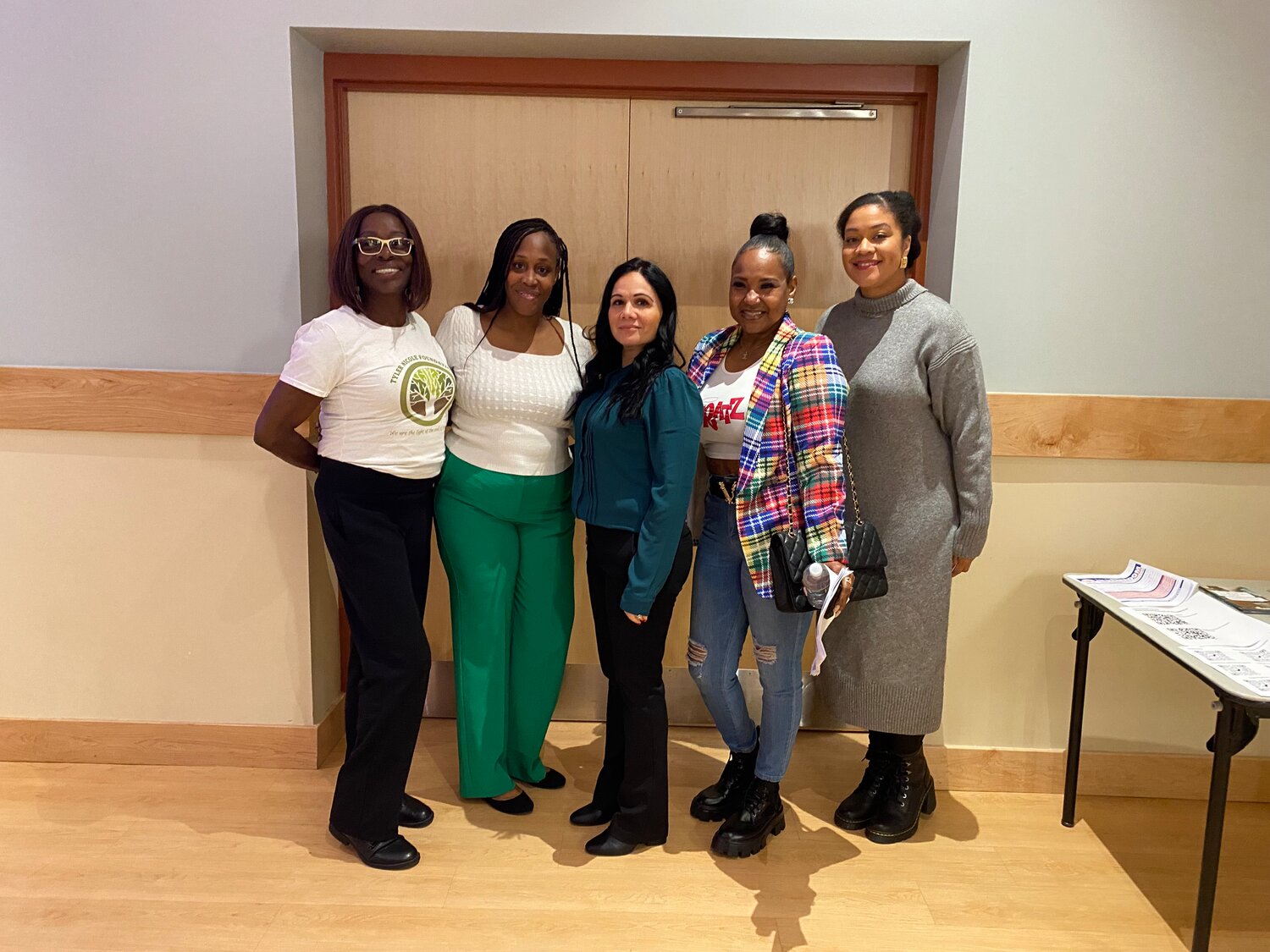Equity 4 LI Youth panel in East Meadow focuses on crucial topic
In honor of Pregnancy and Infant Loss Awareness Month, marked in October, Equity 4 LI Youth, an East Meadow-based organization, is working to raise awareness of perinatal loss — the death of a baby during pregnancy or delivery.
The organization hosted a documentary screening and panel discussion at the East Meadow Public Library last week, focusing on infant loss among the Black population.
The film, “Toxic: A Black Woman’s Story,” follows the story of Nina, a pregnant Black woman. It “depicts the cumulative effects of the chronic stress Nina experiences as a normal part of her daily routine,” according to the documentary’s website.
The panel included Tracey Little, an administrator and clinical practitioner at Concern4Community LCSW Services, in Queens; Sharon Turnage, a Ph.D. candidate, psychotherapist and philanthropist; Nordrene Henry, co-founder and vice chair of Tru Outreach Inc., in Ronkonkama; and Amina Woods, a clinical social worker, psychotherapist and birth worker.
It was moderated by Marcella Pizzo, a licensed mental health counselor and the wife of Patrick Pizzo, the East Meadow school district’s assistant superintendent for business and finance and the president of Equity 4 LI Youth.
Throughout the discussion, the women explored the many facets of the perinatal loss problem among the African-American population, some of which were detailed in the documentary, and the systemic overhaul that many believe is needed to solve the problem.
The audience was invited to participate in the discussion, which led to a productive conversation full of personal stories, advice and expressions of support.
African-Americans have an infant mortality rate that is 2.4 times higher than that of non-Hispanic whites, according to the U.S. Department of Human Health Services. Much of the discrepancy stems from the struggles Black women face in getting access to adequate health care.
“So often within our health care system, as Black and brown people, our concerns are dismissed or overshadowed,” Woods said.
Doctors may not take the time to listen to these women, the panelists said, and as a result, they may offer recommendations unsuited to their patients’ situations.
“I got on the train and went to work when I should have been on bed rest,” Turnage said. “My doctor didn’t put me on bed rest, and because he said I would be OK, I said, ‘Fine I’ll go to work.’ I had to pay those bills, had to pay rent — until the baby passed.”
The panel explored how to help grieving parents, and the process of dealing with infant loss.
“A lot of times I find, for women that have just lost an infant, it’s just not the time for counseling,” Little said. “They are so broken that they just need to get some food in them, be able to sleep a few nights. From a friendship standpoint, I would just give them some space, let them know you’re there.”
When grief takes over, sometimes people need more than just human connection and support. The women touched on the impact spirituality can have on healing from perinatal loss.
“Although it doesn’t feel like it, grief can be a great source of hope, and it can really give you a sense of purpose and a meaning in life that can really enrich your life,” Henry said. “What are you going to do with (the loss) to make it mean something now?”
The discussion ended with a call to action in the form of a question: How can people advocate for themselves and help create real change in the health care system?
“Be vocal, outspoken, demanding,” Turnage said. “If they don’t want to listen, make them listen.”
“Because of how we are raised, socially and culturally, it’s not so easy for all of us to push back, (but) you are the expert of your body,” Woods added. “If the doctor isn’t going to listen, you have to be able to listen to yourself, because it’s the only way you’ll be able to effectively advocate when you’re in the doctor’s office.”
Those who are interested in watching “Toxic: A Black Woman’s Story” or learning more about it can visit ToxicShortFilm.com. For more about Equity 4 LI Youth, go to Equity4LIYouth.org.

 58.0°,
Partly Cloudy
58.0°,
Partly Cloudy 




